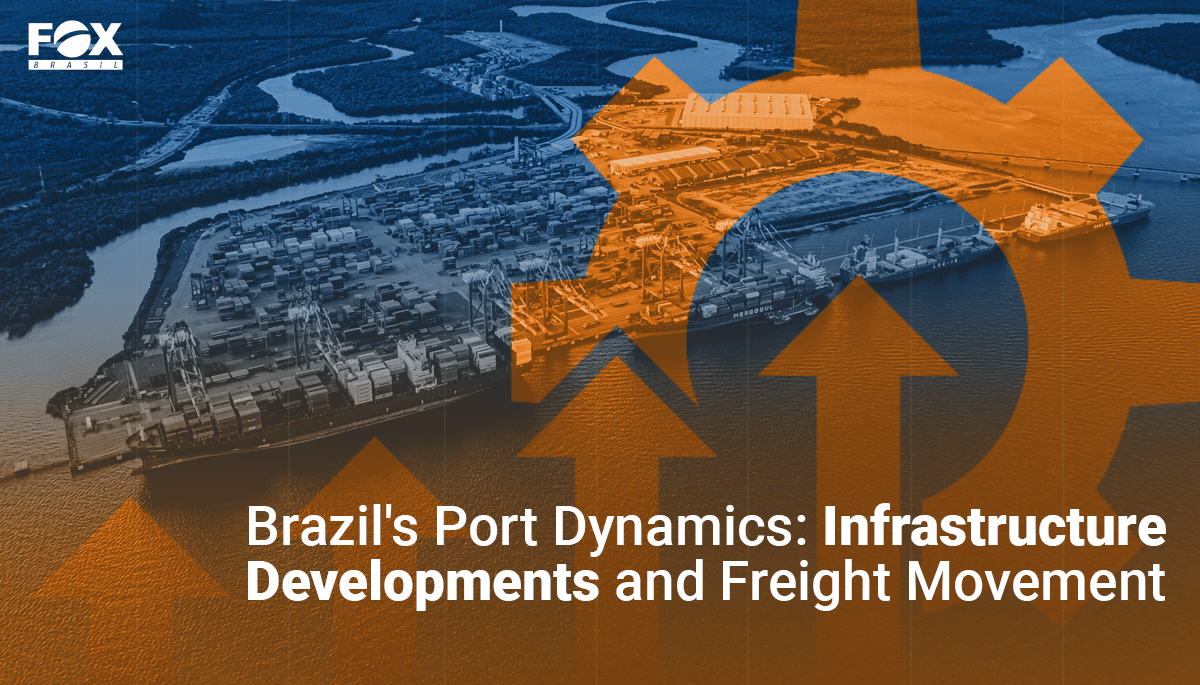Brazil’s Port Dynamics: Infrastructure Developments and Freight Movement

Understand Logistics & Freight
Brazil, with its extensive coastline and robust economy, has long been a pivotal player in global trade. Central to its economic prowess are its ports, which serve as gateways for both imports and exports, facilitating the movement of goods across continents. In recent years, significant developments in port infrastructure have been reshaping the landscape of maritime trade in Brazil. Let’s delve into the updates on major Brazilian ports, ongoing infrastructure projects, and their profound impact on freight movement.
Major Brazilian Ports: Anchors of Trade
Brazil boasts several major ports that play crucial roles in its maritime trade network. Among these, Santos, Itajaí, Paranaguá, Rio de Janeiro, and Suape stand out as key hubs, handling a substantial portion of the country’s cargo traffic. Santos, located in São Paulo state, holds the title of Latin America’s busiest port and a vital link in Brazil’s trade with global markets. Meanwhile, ports like Itajaí and Paranaguá specialize in container handling, facilitating the movement of manufactured goods and commodities.
Infrastructure Projects Driving Change
To meet the growing demands of international trade and enhance efficiency, Brazil has been investing significantly in port infrastructure projects. One notable initiative is the Port of Santos Expansion Project, aimed at increasing the port’s capacity and modernizing its facilities to accommodate larger vessels. This expansion not only boosts the port’s throughput but also enhances its competitiveness on the global stage.
Similarly, the Itajaí Port Development Program focuses on upgrading infrastructure to streamline operations and accommodate larger vessels. By deepening berths and improving access channels, the project aims to enhance the port’s efficiency and attract more shipping traffic, further solidifying its position as a key maritime gateway in Brazil.
Furthermore, projects such as the Rio de Janeiro Port Modernization Program and the Suape Port Complex Expansion are emblematic of Brazil’s commitment to fortifying its port infrastructure to meet the evolving needs of global trade.
Impact on Freight Movement
These infrastructure developments have far-reaching implications for freight movement in Brazil and beyond. By enhancing port capacity and efficiency, they reduce congestion, shorten turnaround times, and lower logistics costs. This, in turn, benefits exporters and importers by improving supply chain reliability and competitiveness.
Moreover, the modernization of port facilities enables Brazilian ports to accommodate larger vessels, including mega-container ships and bulk carriers. This not only enhances the ports’ attractiveness to shipping lines but also facilitates economies of scale, making maritime transport more cost-effective and environmentally sustainable.
Furthermore, improved port infrastructure can stimulate regional economic development by attracting investment and fostering trade-related activities. Enhanced connectivity and efficiency in freight movement can unlock new trade opportunities, driving economic growth and job creation in port cities and surrounding regions.
The ongoing developments in Brazil’s port operations and infrastructure underscore the country’s commitment to fostering trade and economic growth. By investing in modernization and expansion initiatives, Brazilian ports are poised to strengthen their position as crucial nodes in global supply chains. As these projects come to fruition, they will not only bolster Brazil’s trade capabilities but also contribute to the broader objectives of enhancing connectivity, fostering economic development, and promoting sustainable trade practices. Indeed, navigating Brazil’s port dynamics reveals a nation at the helm of maritime progress, charting a course towards greater prosperity on the waves of global trade.